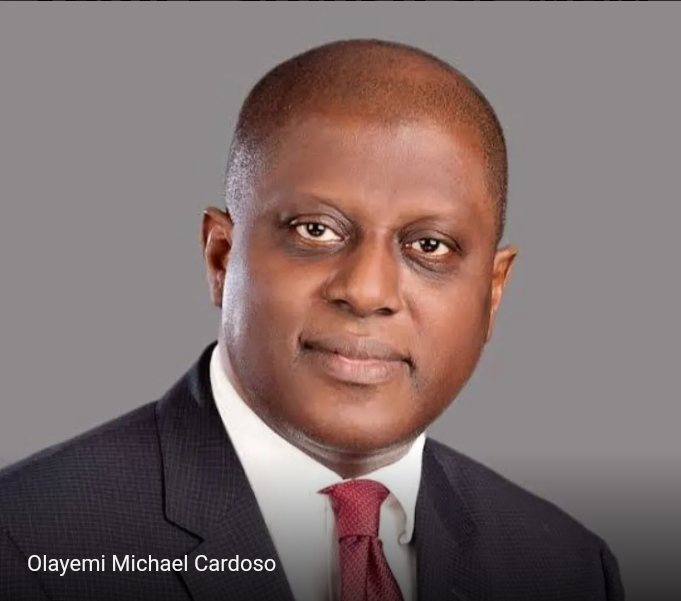
CBN and the Task of Repositioning Nigeria’s Global Economic Standing
By Zekeri Idakwo Laruba
In a powerful testament to Nigeria’s commitment to economic revival, institutional reform, and international collaboration, the Central Bank of Nigeria (CBN), in partnership with J.P. Morgan and the Nigerian Exchange Group (NGX), convened a landmark global investment forum, penultimate Tuesday, at Nasdaq MarketSite in New York City.
This high-profile engagement, held in the lead-up to the 2025 IMF and World Bank Spring Meetings, was more than a meeting of minds; it was a statement of intent.
Titled “The Nigeria Investment Agenda: Pathways for Growth & Global Partnerships”, the forum marked a new era in Nigeria’s pursuit of economic transformation and global reintegration.
By convening global investors, members of the Nigerian diaspora, financial giants, and policy leaders, the forum presented an opportunity to reshape Nigeria’s economic narrative—one anchored on reform, resilience, and renewed confidence.
At the forefront of this engagement was CBN Governor Olayemi Cardoso, who outlined the Bank’s reform roadmap spanning the last 18 months.
These measures, from the liberalization of the FX market to monetary tightening and enhanced transparency, are carefully designed to stabilize Nigeria’s macroeconomy and restore its global economic standing.
But the forum was more than symbolic—it was a pivotal moment in recalibrating Nigeria’s investment approach.
Taking this conversation to Nasdaq, a financial epicenter, signaled Nigeria’s readiness to re-engage the global investment community with clarity, credibility, and unwavering confidence.
It was Nigeria telling its story through facts: showcasing reform wins, acknowledging the ongoing challenges, and laying the foundation for enduring partnerships.
Deputy Governor Muhammad Sani Abdullahi highlighted the progress made, including an uptick in FX turnover, early signs of disinflation, and bolstered foreign reserves.
These indicators demonstrate that Nigeria’s economic fundamentals are responding to the policy signals.
Abdullahi emphasized that with a market-determined exchange rate, transparency, and a rules-based framework, investor confidence is steadily returning—an essential prerequisite for long-term capital inflows.
A key panel session titled “Repricing Nigeria: Assessing the Scope for Sustained Change” brought together international financial experts, including Joyce Chang of J.P. Morgan, Jason Rekate of Citi, Razia Khan of Standard Chartered, and Ahmad Zuaiter of Jadara Capital Partners.
Their collective insight pointed to one conclusion: Nigeria, once deemed a risky frontier, is now showing signs of recovery that could unlock substantial investment opportunities, provided reforms continue and policy consistency is maintained.
The intellectual weight of the forum was further heightened by a fireside chat between Governor Cardoso and renowned economist Dr. James Robinson. Their discussion delved into the socio-economic roots of institutional failure and the imperative for strong, credible leadership.
Governor Cardoso’s resolute words—“We inherited a crisis of confidence, but we chose a different path. We’re not turning back”—underscored the Bank’s unwavering commitment to reform. The forum exemplified inclusive leadership and global outreach.
Nasdaq President Tal Cohen opened the event, while Dr. Nkiru Balonwu anchored the discussion. The session also featured Temi Popoola, Group CEO of NGX, who moderated the Q&A segment. Dr. Olubukola Akinniyi Akinwunmi of the CBN concluded with a call for continued partnership.
The presence of prominent US-based Nigerian diaspora leaders, including Mr. Robert Agbede, Prof. Melvin Ayogu, and Dr. Aloysius Ordu, underscored the CBN’s strategy of tapping into global Nigerian talent for its economic reinvention agenda.
For Nigeria, this forum marks a critical juncture. It is not merely about attracting capital—it is about repositioning the nation’s financial institutions as credible, trustworthy global players.
For the CBN, it is a deliberate effort to redefine its institutional image, grounded in competence, transparency, and international alignment. For global investors, it is an open invitation to engage with a reform-minded Nigeria eager to chart a new course for growth, underpinned by trust and collaboration.
Ultimately, the true significance of this event lies in its potential to serve as a catalytic platform, linking Nigeria’s domestic reforms with international capital flows.
If sustained, this type of strategic engagement could unlock Nigeria’s immense economic potential and usher in a new era of resilient, inclusive, and investment-friendly growth.
Zekeri Idakwo Laruba is the Assistant Editor with PRNigeria and Economic confidential. He can be reached via [email protected]
